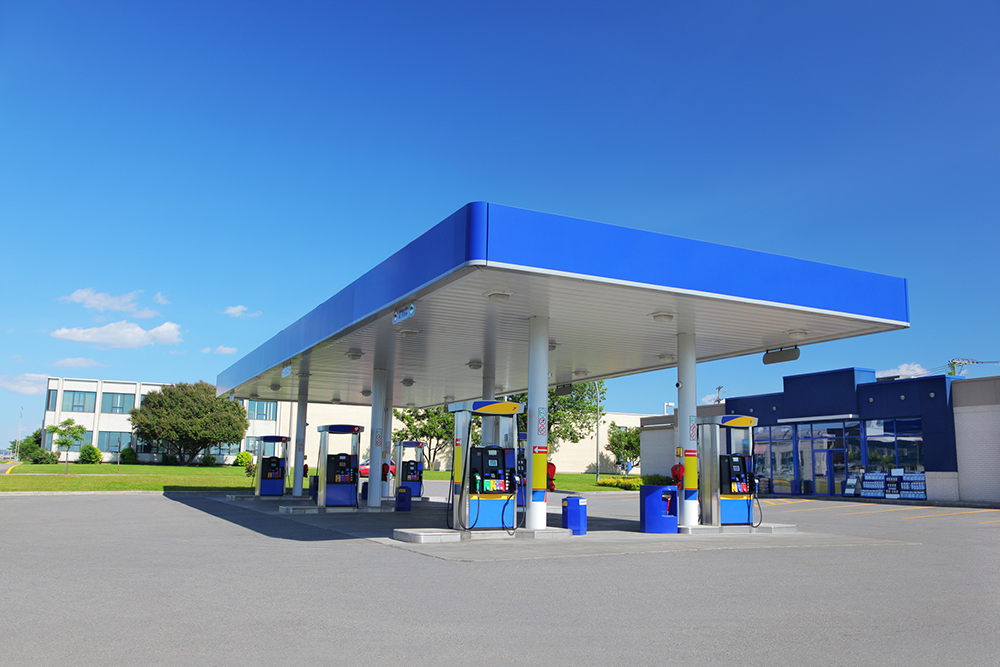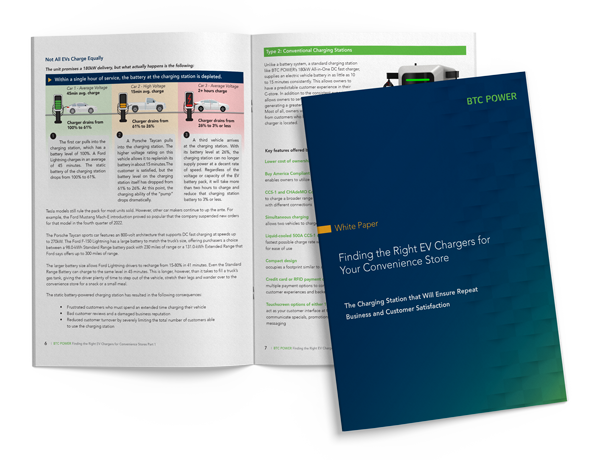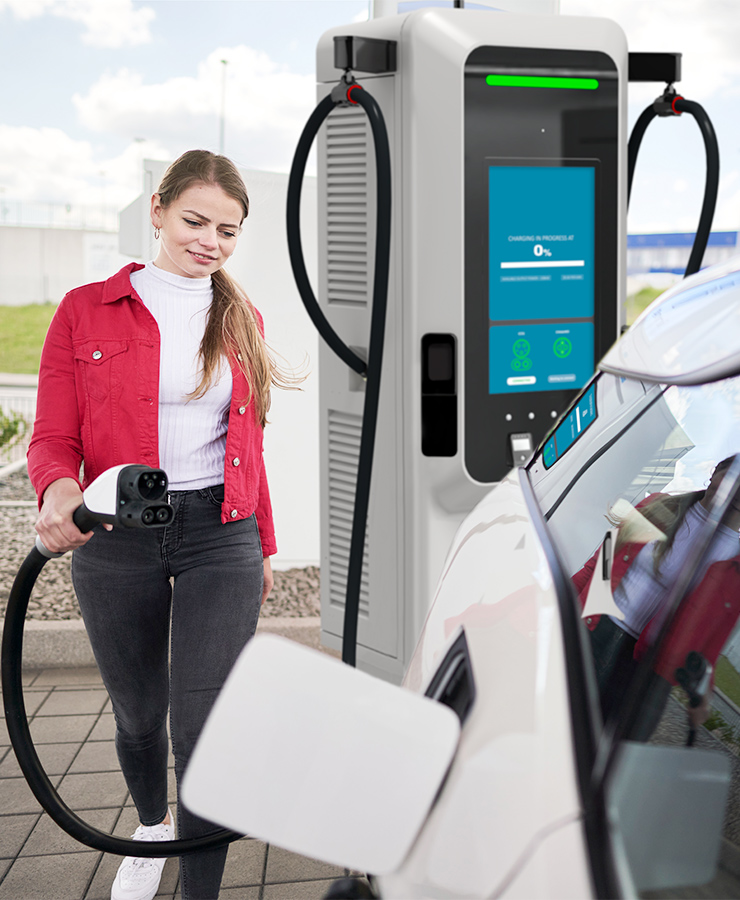
The EV charger that will ensure repeat business and customer satisfaction
Electric vehicle (EV) adoption is accelerating rapidly. While EVs currently account for 7-8% of all cars and trucks (including hybrids), that number is expected to skyrocket. Bloomberg analysts predict that over half of all passenger cars sold in the U.S. will be electric by 2030, driven by climate-spending measures. Convenience store (C-store) owners are in a prime position to capitalize on this shift. According to a Forbes article, investing in EV charging stations could “accelerate a C-store beyond average growth.” However, choosing the right type of EV charging station is crucial to ensure repeat business and customer satisfaction.
Just like any conventional C-store or fueling station, the business goals are to attract and retain new customers. One of the best ways to accomplish this goal is to install the right commercial EV charger that will ensure repeat business by providing the best user experience to make your location the best charging option in the immediate area.

Understanding the EV revolution and market potential
Federal and state regulations
The push for EVs is supported by federal and state regulations aimed at reducing carbon emissions. States like California have taken the lead by planning to ban sales of new gasoline-powered cars and light trucks by 2035. Other states, including Massachusetts, Washington, and New York, are considering similar measures. Additionally, the Infrastructure Bill (NEVI) allocates $5.4 billion over five years to establish a network of EV charging stations across the nation’s highways, signaling a significant shift toward electric mobility.
C-Stores’ strategic advantage for gaining foot traffic
Convenience stores have long been associated with fueling stops. With nearly 150,000 convenience stores in the U.S., about 117,000 (or 80%) sell gasoline, making up 80% of all gasoline pumped in the country. Consumers often use these stops to purchase drinks, food, lottery tickets, and other items. This established behavior presents a unique opportunity for C-stores to integrate commercial EV charging stations for C-stores, enhancing their role as essential stops for travelers.
A survey by Bluedot.io, titled the “Convenience Experience Report,” reveals that:
- Seven in ten respondents enter the convenience store while pumping gas.
- Three-fourths of respondents want EV charging stations installed at convenience stores.
- Among EV owners, 74% said they would be more likely to use a fast-charging station if a convenience store was nearby.
Enhancing the C-store experience with EV charging stations
Installing EV charging stations can transform the C-store experience. Traditional gasoline fill-ups take about five to seven minutes, while Level 3 EV charging can take around 15 minutes. This extended time period gives consumers more opportunity to shop, potentially increasing sales. Retail studies show that the longer a person stays in a store, the more they are likely to spend. Thus, C-store owners can move from a “grab-and-go” model to a more relaxed shopping experience, boosting profitability.

Choosing the best EV charger for C-stores
Selecting the appropriate EV charger for C-stores and fueling stations is critical for ensuring a consistent customer experience and maximizing the benefits for the C-store. There are two main types of Level 3 chargers available commercially:
Type 1: Battery Energy Storage System (BESS)
BESS EV chargers come with an integrated battery storage system. While these systems claim to require no infrastructure alterations, they have several drawbacks:
- Cost: BESS devices are typically more expensive due to additional components, often doubling the cost compared to conventional chargers.
- Risk: Static batteries pose a fire hazard, requiring approval from the fire marshal, which can complicate installation.
- Space: These devices are larger and occupy more space, which can be a disadvantage in premium real estate markets.
- Customer Experience: BESS EV chargers can deplete quickly, leading to inconsistent customer experiences.

Type 2: Conventional EV charging stations
Conventional charging stations, such as BTC POWER’s 180kW All-in-One DC fast charger, offer a more consistent and reliable service. These chargers can recharge an EV battery in as little as 10 to 15 minutes, ensuring a predictable customer experience. Key features of the 180kW charger that BESS models do not include are:
- Continuous charging: Chargers are not drained after previous charging, consistent energy from grid
- Future-proofed: Ability to upgrade as EV battery storage increases
- Improved user experience: Reliable charger output for repeat business
- Owner-preferred: Most chosen type of EV charging system due to reliability
Investing in the right EV charging station can significantly enhance the C-store experience, driving repeat business and customer satisfaction. Commercial EV chargers like BTC’s 180kW All-in-One DC fast charger offer a reliable and consistent charging solution, ensuring a steady stream of customers. As the shift to electric vehicles gains momentum, C-store owners can leverage this opportunity to redefine their service model and capitalize on the growing demand for commercial EV charging infrastructure.
Learn more about the best EV charging station for C-stores and the limitations of BESS EV chargers in our white paper, Finding the Right EV Chargers for Your Convenience Store.
BTC POWER is the largest EV charger manufacturer in the country, providing the top commercial EV charging stations for fleet and commercial vehicles.

